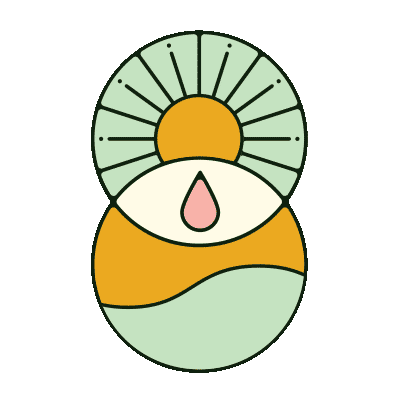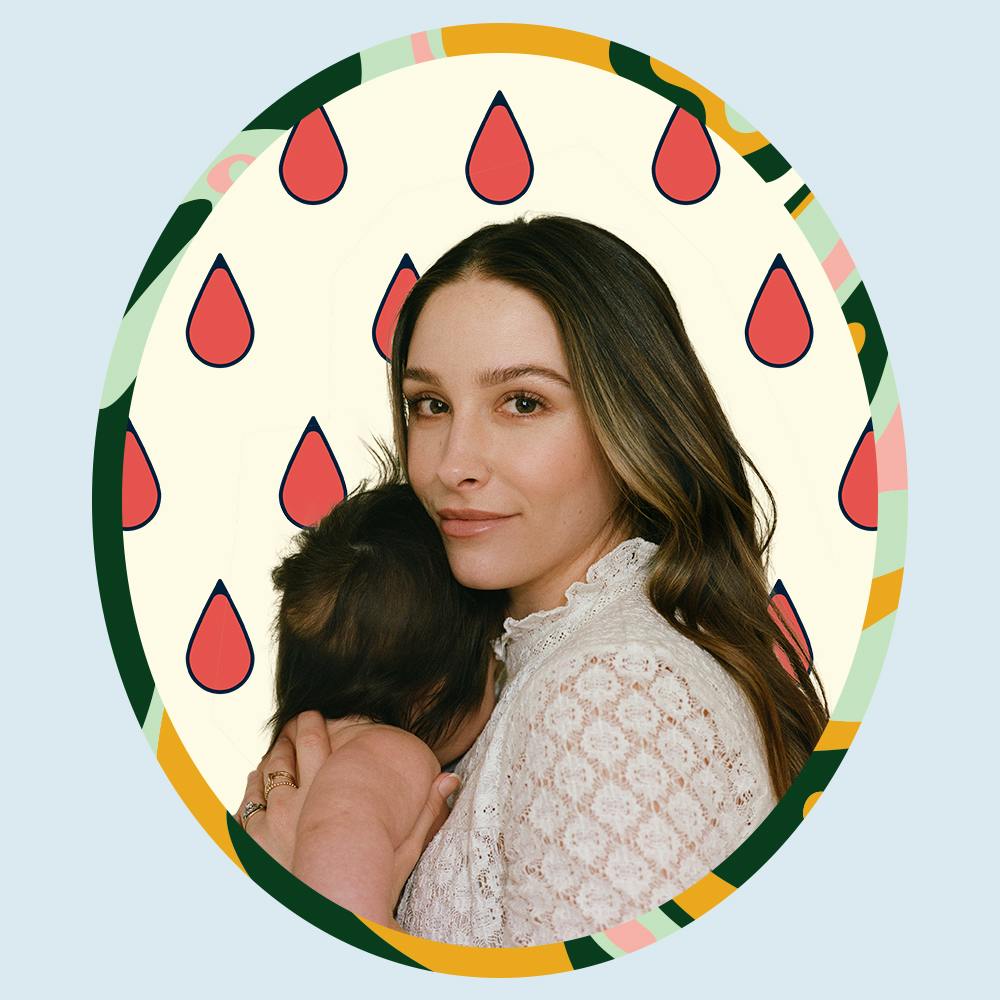Illustrated by Erin Rommel
Photography by Katie McCurdy
From stretch marks to weird cravings. From needing a bigger shoe size (this really is a thing) to extreme hair loss. Pregnancy and motherhood changes our body in so many different ways, and that includes your period too.
When you become pregnant, your uterine lining (endometrium) becomes thicker and doesn’t shed like it usually does. It’s the act of this shedding that causes your monthly bleed to begin—that's why in most cases a missed period is the first sign that it’s time to take a pregnancy test!
Most women will then go on to enjoy nine blissful months without the cramps, bleeding and PMS that accompanies menstruation but, as soon as their baby is born, they’ll experience postpartum bleeding (or lochia as it’s officially termed).
This happens as your body sheds all the extra uterine tissue it has built up and used during pregnancy and it can feel like a culmination of all your missed periods rolled into one! It usually lasts around 2 weeks but some women find it goes on for as long as 6 weeks.
When do your periods return after having a baby?
Once lochia is finished, you’ll hopefully have some time before your first proper period comes back. Most women get this around 8 weeks after having a baby (meaning you could be fertile as soon as 5-6 weeks after giving birth) but, for women who breastfeed, it’s likely to be much longer.
Breastfeeding requires the hormone prolactin to produce breast milk, and it’s this hormone that’s thought to stop the ovulation process in many women.
Some women who breastfeed don’t get their first period for up to 18 months postpartum. This varies between women (and also depends on things like how often you’re breastfeeding) so don’t assume that just because you’re breastfeeding, you’re not fertile!
If you’re not breastfeeding, there’s still a few reasons for why you’re period may not return straight away. “Stress can be a contributing factor to our periods and also if a woman has an underlying condition like PCOS, for example, her periods may take a while to return.” explains Gemma Barry, Well Woman Specialist of The Well Woman Project.

How do your periods change after having a baby?
After you’ve gone through your first period, you might just find your cycle returns like clockwork, but lots of women find that it takes a while for them to settle into a regular pattern again or that their period is just different to how it used to be.
Part of this comes back to the endometrium. The first few periods after a baby can be heavier or longer than you’re used to due to excess lining that needs to be shed.
Heavier periods can be down to higher levels of oestrogen as well. “The hormone oestrogen is responsible for the thickening of your lining and the more of it you have, the thicker your lining and the heavier you bleed,” explains Gemma Barry.
Other women are lucky enough to find that their periods actually get lighter and less painful after a baby and again, this can be due to all sorts of reasons. Sometimes it’s due to changes in the uterus, while another factor can be going back on hormonal contraception.
Some women have been off contraception for years whilst trying for a baby, so the usually lighter withdrawal bleed they get on the contraceptive pill can be a welcome surprise compared to the periods they’ve previously experienced.
Hormonal contraception can also explain other changes, such as irregular periods or changes in the length of your periods. If you’ve switched to a different method after having a baby, it can take several months for things to settle down and get back into a routine.
Lifestyle changes and your period
Becoming a mom is a huge lifestyle overhaul, so it’s no surprise that this could alter our period too. For one, our stress levels certainly rise in the early days and it’s proven that high stress levels can lead to irregular cycles, as well as potentially changing the length of your periods or even causing them to disappear altogether.
Our body shape and weight is likely to change during the postpartum period and, since fat cells and ovaries are responsible for producing the hormone oestrogen, any weight fluctuations can impact this production and cause period changes.
And finally, one thing we don’t often get a lot of in the first few months of motherhood is sleep. There’s a reason you’re recommended to get eight hours of it a night: it’s because our bodies need this vital time to rest and repair.
Lack of sleep can make everything go a little bit haywire. A study of women with Delayed Sleep Phase Syndrome found that they were much more likely to have PMS and irregular cycles compared to those who slept well.
Dealing with changing periods after a baby
There’s all sorts of reasons why your period could change after having a baby, but if you’re worried it’s always worth having a chat with your GP, who can check your hormone levels and test you for conditions such as PCOS and endometriosis. Either way, it’s worth paying closer attention to your cycle.
“Menstrual cycle awareness involves a daily charting practice to check-in and see how our physical, mental and emotional wellbeing changes across the four different hormonal phases of the menstrual cycle. Charting helps us see when there are changes in our cycle from the norm and is a great practice to begin postpartum when there are many hormonal changes occurring,” explains Claire Baker, author of 50 Things You Need To Know About Periods.
Lot of us still don’t feel that confident talking openly about our cycle, but we hope these tips have helped reassure you that, for many people, period changes in the postpartum period are normal. Regularly tracking your cycle can be a really useful way to make sense of all these changes and figure out your "new" normal.






